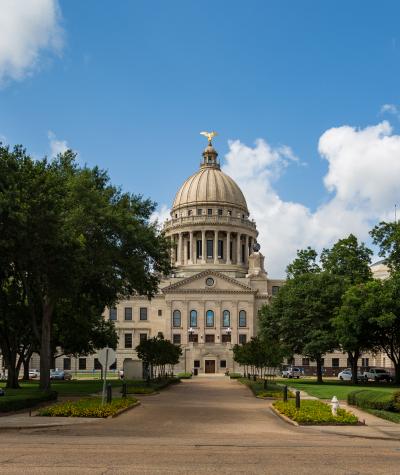Despite the benefits of disclosure, some lawmakers are actively working to undermine political transparency by denying citizens access to valuable information about nonprofit organizations that seek to influence our democratic process.
In Mississippi, the state legislature recently passed HB 1205, a pernicious attempt to withhold virtually all information about nonprofit groups’ donors from both the general public and government officials. If signed into law, the bill would effectively prohibit state and local agencies in Mississippi from requiring any disclosure by politically active nonprofits.
Disclosure is not only endorsed by U.S. Supreme Court precedent, but it is also popular with Americans across the political spectrum and is part of a healthy democracy.
In 2010, Justice Scalia wrote that “Requiring people to stand up in public for their political acts fosters civic courage, without which democracy is doomed. For my part, I do not look forward to a society which, thanks to the Supreme Court, campaigns anonymously.”
That same year, Justice Kennedy explained, in Citizens United v. FEC, that “providing the electorate with information” about the sources of election-related spending helps citizens “make informed choices in the political marketplace.”
HB 1205’s protection of nonprofits’ information extends well beyond charities and religious groups organized under section 501 (c)(3) of the Internal Revenue Code. Under the bill, donors to section 501(c)(6) trade associations, section 501(c)(5) labor unions, and section 501(c)(4) “social welfare” organizations, all of which engage in substantial amounts of political campaigning and lobbying activity, also would be hidden from the public and government officials.
Since these nonprofit organizations spend extensively on elections, it is critical that voters have access to information about their political expenditures in order to make informed choices in Mississippi’s elections this fall and in the future.
In addition to denying voters important information about the sources of political spending, the legislation could make it easier for foreign actors to circumvent federal law’s prohibition on foreign national election spending using nonprofit groups in Mississippi— because the state’s law enforcement officials would be powerless to identify and punish the lawbreakers.
Mississippi has had more officials convicted of corruption than any state in the post-Watergate era. Despite this history, HB 1205 would further facilitate corruption in Mississippi by making many conflicts of interest impossible to detect.
Moreover, the bill would prohibit the disclosure of donations given by current or prospective government contractors to nonprofit groups affiliated with Mississippi lawmakers, which could lead to an increase in pay-to-play politics within state and local government.
HB 1205 includes a confusing provision that purports to exempt Mississippi’s existing campaign finance laws from the bill’s anti-transparency mandate. But, rather than ensuring the integrity of campaign finance reporting requirements, the provision introduces a conflict within the bill itself, which otherwise requires secrecy “[n]otwithstanding any law to the contrary.” This internal inconsistency underscores the danger of enacting such a broad bill.
Just a few months ago, a nearly identical bill was hastily passed by Michigan’s legislature. Fortunately, Governor Rick Snyder, a Republican, vetoed the bill, calling it “a solution in search of a problem.”
Governor Snyder’s veto statement cited the longstanding U.S. Supreme Court precedent, established in NAACP v. Alabama, that protects groups facing a genuine prospect of harm stemming from public disclosure.
In vetoing Michigan’s anti-transparency bill, Governor Snyder recognized that codifying a sweeping anti-transparency mandate into state law was both unnecessary and harmful to the public interest.
Attacks on disclosure are not just coming from state legislatures. During last year’s election season, CLC highlighted similar efforts to keep voters in the dark; in the 2018 midterms, Democratic and Republican operatives manipulated reporting schedules to shield the identity of their donors until after people had voted.
The hostility towards disclosure threatens to make dark money even darker and more prominent in our elections. Governor Bryant should veto the dangerous HB 1205 to ensure integrity in state government and to protect Mississippi residents’ right to political transparency.
CLC sent a letter to Mississippi Governor Bryant explaining the perils presented by this legislation and urging him to veto the bill.
